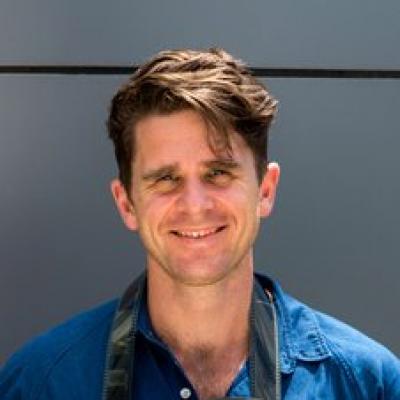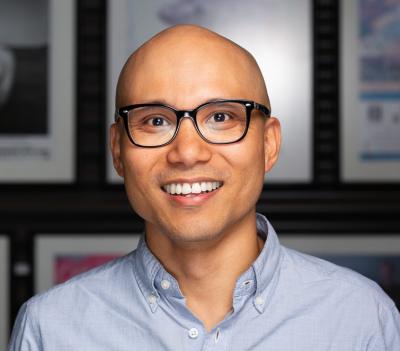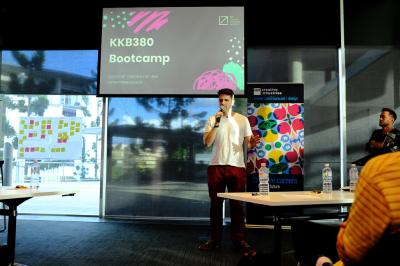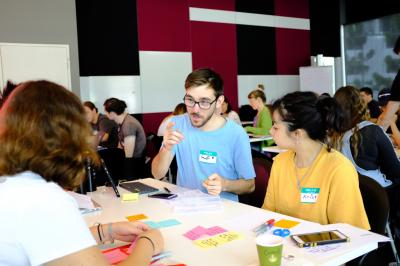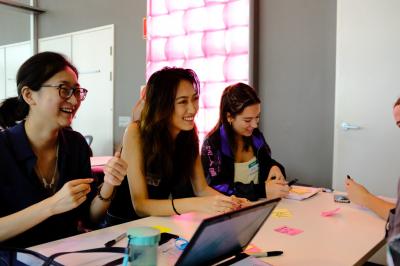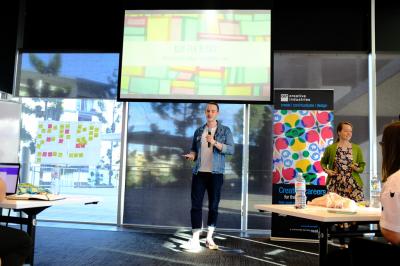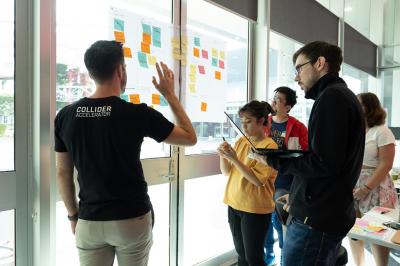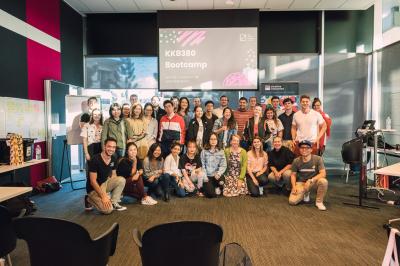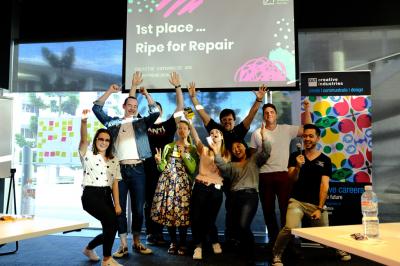Creative Enterprise and Entrepreneurship (KKB380) is the first Queensland University of Technology unit of study to address directly the challenges and opportunities of entrepreneurship within the Creative Industries (CI). QUT is also the world’s first University to establish a Creative Industries faculty and it remains the largest CI faculty within Australia. Developed, and delivered by QUT Lecturer in Creative Industries Dr Ruari Elkington, student engagement in KKB380 has allowed the concepts of entrepreneurship and innovation within contemporary creative industries to be richly understood.
Through sustained collaboration with embedded Work Integrated Learning (WIL) partner Creative Enterprise Australia (CEA), students have gained crucial real-world insights into not only the dynamic nature of entrepreneurship, but of the distinct nature of Creative Industries entrepreneurial activity. This direct articulation of both the creative thinking of CI students with traditional enterprise skills is an important development for entrepreneurship education beyond that of traditional business education.



